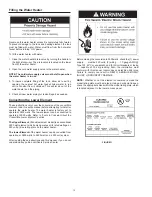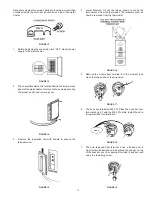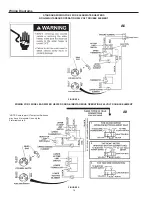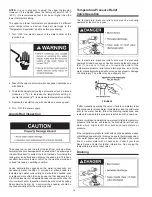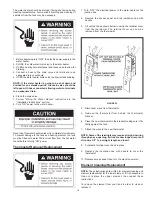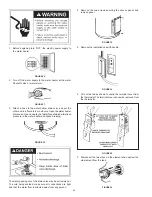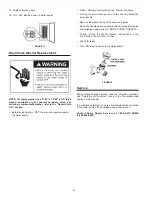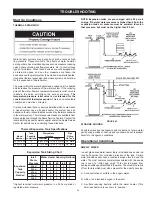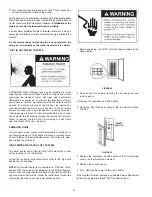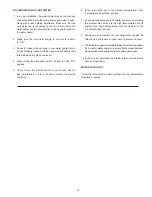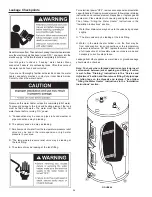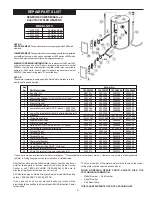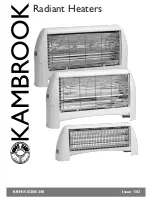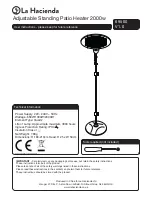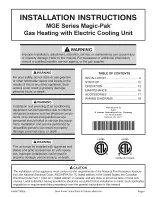
26
FIGURE 46.
Leakage Checkpoints
Read this manual first. Then before checking the water heater make
sure the electric supply has been turned “OFF”, and never turn the
electric supply “on” before the tank is completely full of water.
Use this guide to check a “Leaking” water heater. Many
suspected “Leakers” are not leaking tanks. Often the source of
the water can be found and corrected.
If you are not thoroughly familiar with electric codes, the water
heater, and safety practices, contact your local Sears Service
Center to check the water heater.
Never use this water heater unless it is completely full of water.
To prevent damage to the tank and heating element, the tank
must be filled with water. The water must flow from the hot
water faucet before turning “ON” power.
A. *Condensation may be seen on pipes in humid weather or
pipe connections may be leaking.
B. The primary anode rod may be leaking.
C. Small amounts of water from the temperature-pressure relief
valve may be due to thermal expansion or high water
pressure in your area.
D. *The temperature-pressure relief valve may be leaking at
the tank fitting.
E. The element may be leaking at the tank fitting.
Turn electrical power “OFF”, remove access panel and insulation
cap with handle. If leaking around element, follow proper draining
instructions and remove element. Reposition or replace gasket
on element. Place element into opening and tighten securely.
Then follow “Filling the Water Heater” instructions in the
“Installation Instructions” section.
F. Water from drain valve may be due to the valve being opened
slightly.
G. *The drain valve may be leaking at the tank fitting.
H. Water in the water heater bottom or on the floor may be
from condensation, loose connections or the temperature-
pressure relief valve. DO NOT replace the water heater until
a full inspection of all possible water sources is made and
necessary corrective steps taken.
Leakage from other appliances, water lines, or ground seepage
should also be checked.
Note: To check where threaded portion enters tank, insert
cotton swab between jacket opening and fitting. If cotton
is wet, follow
“Draining”
instructions in the
“Service and
Adjustment”
section and then remove fitting. Put pipe dope
or teflon tape on the threads and replace. Then follow
“Filling the Water Heater”
instructions in the
“Installation
Instructions”
section.
Summary of Contents for POWER MISER 153.326162
Page 3: ...3 GENERALSAFETY ...

